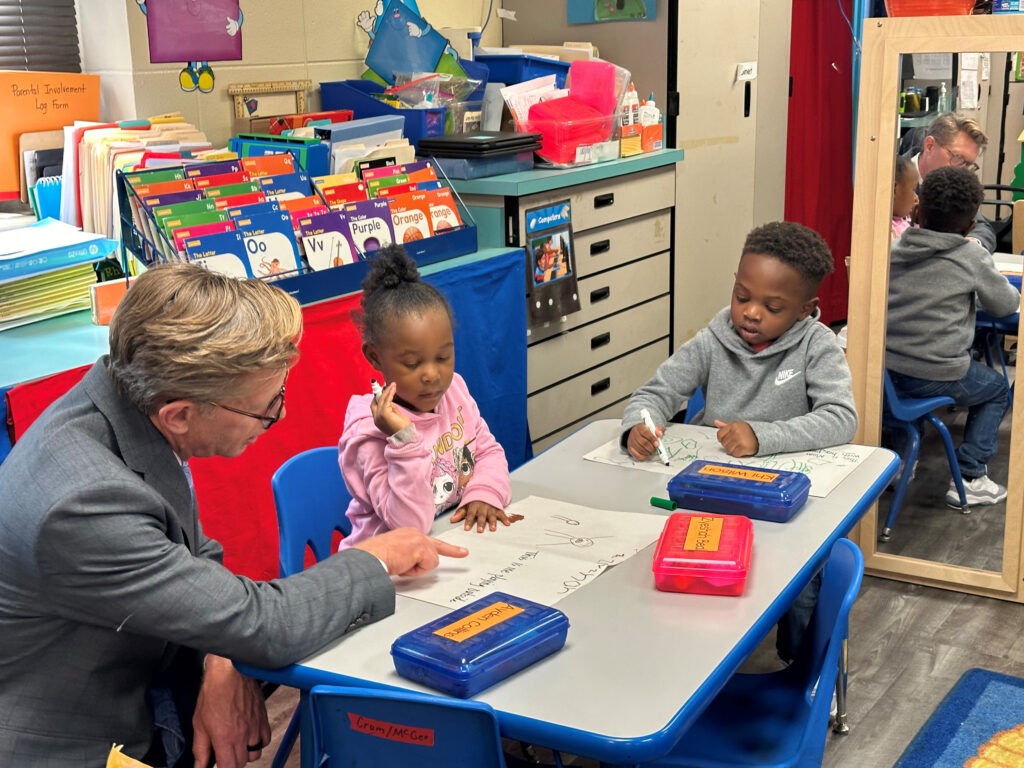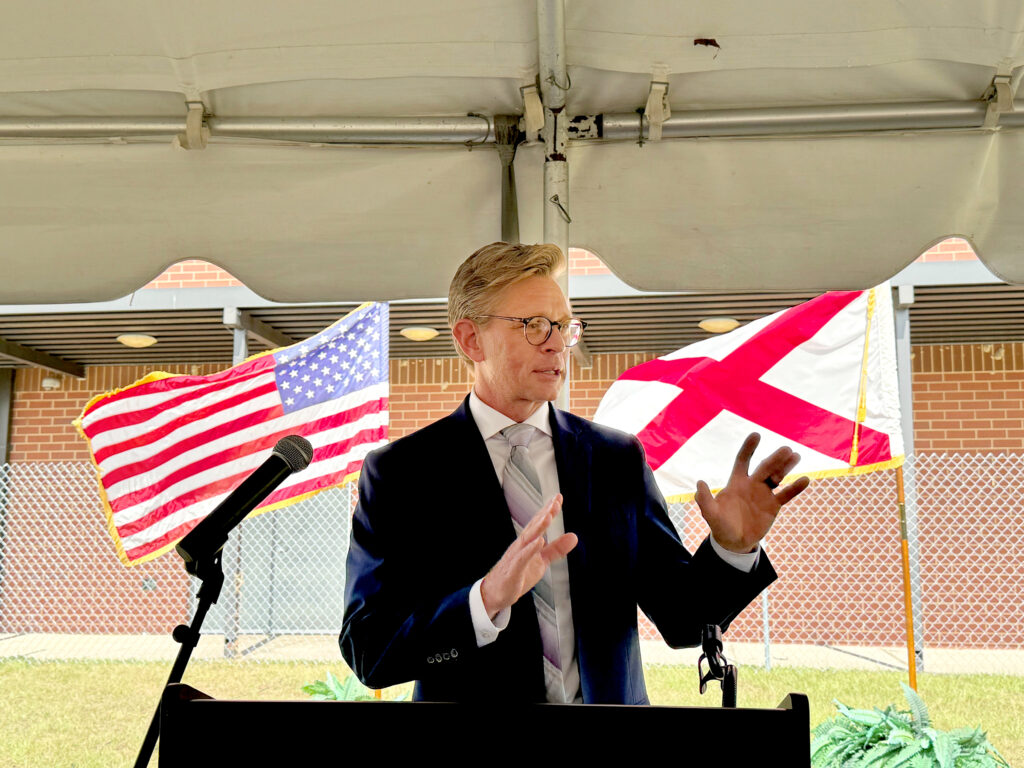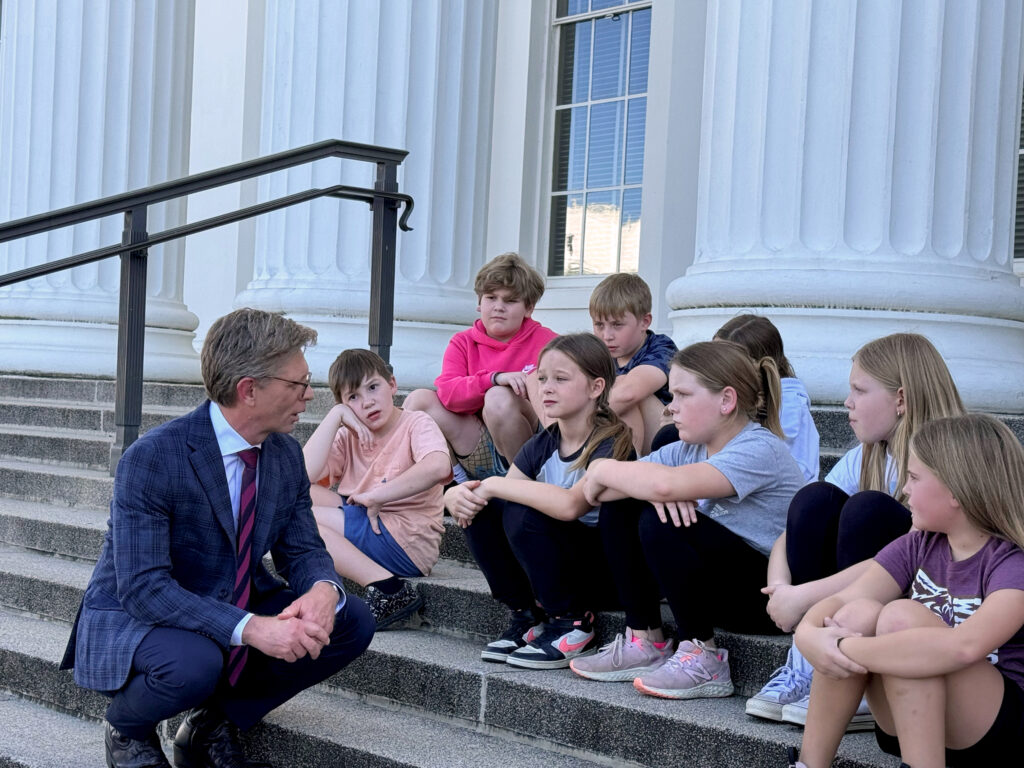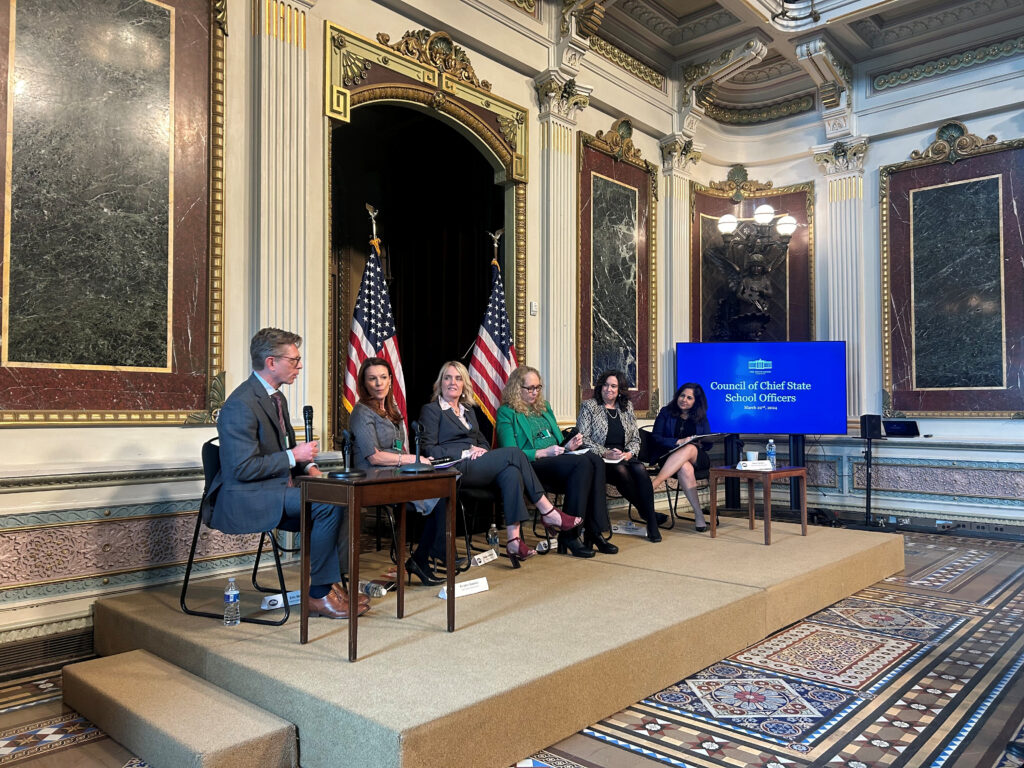Alabama schools chief proud of state’s accomplishments, but ‘we’ve just scratched the surface’

By Lenore Vickrey
Dr. Eric G. Mackey has been Alabama’s superintendent of education since 2018. Under his tenure Alabama students have made a number of improvements in math and reading scores, and high school graduation rates have risen to 91 percent. A former high school and middle school science teacher, school principal, and city school superintendent, he holds degrees from Jacksonville State University and the University of Alabama. He was executive director of the School Superintendents of Alabama for eight years before being named superintendent. He serves on more than 30 different boards and most recently was elected president of the national Council of Chief State School Officers. We spoke to Mackey recently about what motivates him and the challenges still facing Alabama’s public schools.
Tell us a little about your growing-
up years.
I had an absolutely wonderful experience growing up on Lookout Mountain in the Cherokee County community of Sand Rock (served by Cherokee Electric Cooperative). It wasn’t incorporated then, but it has since become a full-fledged town. I went to Sand Rock K-12 school, as had my parents before me and most of my family. It was a great community to grow up in, a place where we could roam the woods, hunt squirrels relentlessly with a .22, ride dirt bikes, play with cousins and friends, go to church and school, and, of course, work!
We lived close to my father’s parents, and they were true subsistence farmers so there was always a fence to fix, hay to bale, or peas to shell. While there were some things that I didn’t enjoy as much at the time, looking back, I am grateful for every experience. Mostly, I am so extremely grateful for such a wonderful family. My parents still live in the house where they reared my older brother and me. They were – and still are – the most amazing parents any boy could ever want.
I think I was a pretty studious boy. I always enjoyed school; read everything I could get my hands on, and never found a subject from British literature to agri-science that I did not enjoy. I loved everything about school, joined and ended up leading nearly every club, played sports, and attended nearly every school event that I was actually
involved in.
Was there a moment when you realized you wanted to be a teacher?
Well before I finished high school, I knew I was destined to become a teacher. As I mentioned, I just loved school so much! Of course, I didn’t realize how much more difficult it would be on the other side of the desk until much later. I am a first-generation college student so I had to wade my way through that experience, but I had good teachers and mentors that helped me along the way.
What to teach? Now, that was another question. I first wanted to teach history. I have always been, and continue to this day, to be a voracious reader of history. Nevertheless, several people around me said that there were already too many history teachers and many were having a hard time finding a job in the 1980s; so I opted for science instead. Never looked back and never regretted that decision. At some point along the way I taught nearly every science class available: 7th and 8th grade; biology, physical science, chemistry, and physics. I enjoyed them all but much prefer the physical sciences to the biological ones.

You’ve been Alabama’s state school superintendent since 2018. What have been some of the achievements you are proudest of?
We have accomplished so much since I took office seven years ago that it is difficult to find a place to start. One of the things I am most proud of is almost hidden in that very phrase: “WE”! When I was first named to this role, I began immediately to recruit team members to join me. I never stop recruiting and scouting talent! We have assembled this amazing team of very talented and caring individuals who complement each other. I look for people who have actual experience in the classroom or working directly with the public. I look for people who value people and who know that relationships, respect, and integrity are more important than numbers and statistics. Get the people right and the numbers tend to fall in place later. Of course, there is also constant churn. But even as good people retire or move on to other opportunities, I’m always looking for new possibilities to bring in new people who can complement our team in other ways.
Because we have assembled a good team and also had a strong, amazing, supportive governor and state school board, much good has manifested for our state’s students and its economic wellbeing. When I took the job, I identified some key areas that needed our focus. Among them were:
- Rebuilding the successful Alabama Reading Initiative that had been decimated by budget cuts and shrinking support;
- Implementing a new math initiative with coaching support, stronger standards and testing;
- Better instructional materials for our teachers.
I also wanted to build better civic engagement and empower our graduates to be great citizens after high school – young men and women who would lead strong families, pursue their lives’ ambitions, and give back to their communities. Looking back, we have had success in all of these!
The legislature supported our vision by passing the Alabama Literacy and Numeracy Acts, the TEAMS Act to attract more math and science teachers, the Principal Leadership and Mentoring Act, and others. They have also ponied up hundreds of millions of dollars to support these efforts. The support from our Legislature has been monumental in our work to move Alabama’s
students forward.
Our most recent success is the RAISE Act which will bring additional student-targeted funding to school systems. The passage of this bill comes after years of conversation about adding a weighted component to our funding model, but — and this is very important — without upending the Foundation Program which remains one of the most stable and consistent funding programs in the U.S. The Foundation Program is about guaranteeing a reasonable minimum level of support for all schools. Its passage in 1995, for instance, was the first time the state guaranteed teachers could make a minimum salary no matter their home county. Prior to the Foundation Program, many rural counties simply could not afford reasonable size classes. It also guarantees funds for classroom supplies, textbooks, library books, and more. None of this was guaranteed prior to the Foundation Program, and in many places those things were not provided. The RAISE Act is the next step in providing directed student funding to go beyond the minimum. In future years, it will need to grow substantially, and I believe the legislature will see to it that happens; but FY26 offers a strong start toward this goal.

What challenges remain?
There is always more work to do because each new fall there is a new batch of students – not just in kindergarten, but in each grade, each subject, and on every team, too. That’s what I love about working with children and working with schools. Even though there is a rhythm to it, it is not boring or repetitive. Each new day brings with it bold challenges
and opportunities.
Over the next couple years we will double-down on the projects we have started; that is, to continue to improve reading outcomes and strengthen mathematics instruction. But I am now digging ever more deeply into our work on civics and citizenship. Last December, our state school board unanimously passed the most rigorous, comprehensive and strongest set of standards for social studies in our state’s history. After 14 years, we were well positioned for a rewrite of those standards.
But I am also working to expand projects like the Hope Institute, started by retired Alabama Supreme Court Chief Justice Drayton Nabers and led by the amazing Liz Huntley. I have been very involved in the Youth Leadership Development Program led by my longtime friend Kevin Walsh, and now we are also growing a youth leadership initiative created by John Maxwell. We need to give our youth examples of leadership and then give them opportunities for leadership. This also extends to youth clubs and sports teams. I long for the day when each student is academically challenged and supported but also a time when each feels engaged, involved and committed to ideals like teamwork, sportsmanship, and mutual respect. We have accomplished so much, but we have just scratched the surface of what I want us to do!

Do you try to visit individual classrooms?
I get into schools pretty much every month, usually multiple times per month. Nothing brings me more joy than visiting with students. I often frustrate my guides and handlers assigned by the school because I linger behind to talk with students. I really do like to ask them questions and find out what they are thinking. Of course, it takes a few minutes to break the ice with students, especially since I usually walk in alongside their principal and a passel of other suited-up dignitaries. But, I pretty much always find a way to break through and get
them talking.
What inspires you to get up and go to work in the morning?
Every child. Every chance. Every day. That is our State Department motto, and it is one that I brought with me to the Department. It is now emblazoned everywhere you look. But, more importantly, it is emblazoned in people’s hearts and minds. We believe that it is our moral and ethical responsibility as educators to create opportunities, or chances, for children to pursue their own dreams and succeed in life. We come to work to do that for every child, every day!
I often say, “Some days are easier than others and some children are easier than others, but that does not change our responsibility nor our commitment to get it done.” That is what drives me, and it is why I absolutely love my job! What a great blessing and opportunity to get to lead this wonderful work on behalf of young people.





